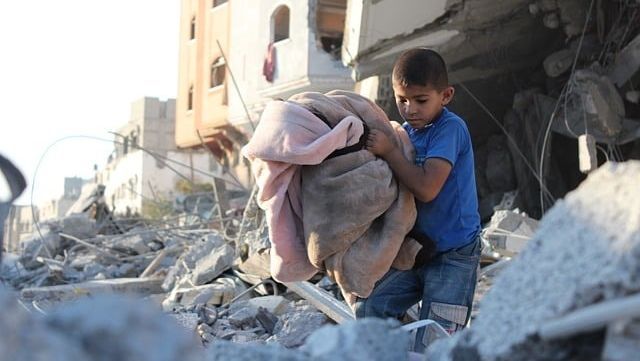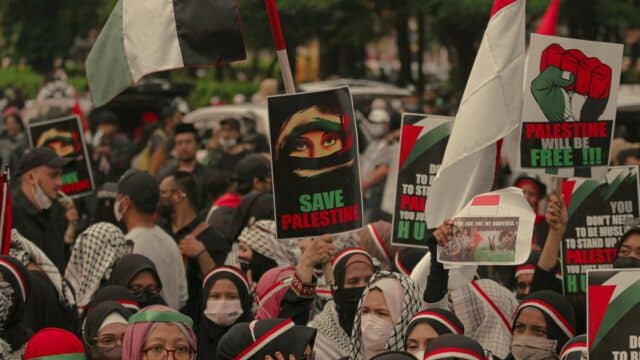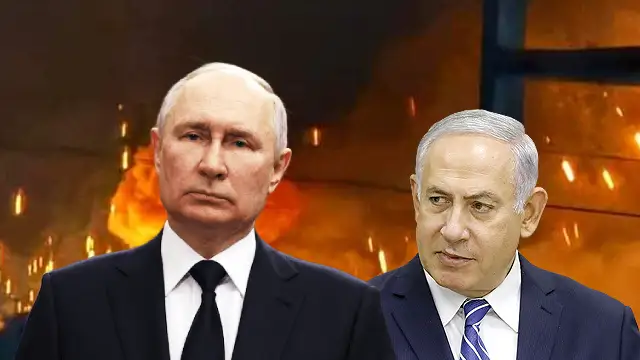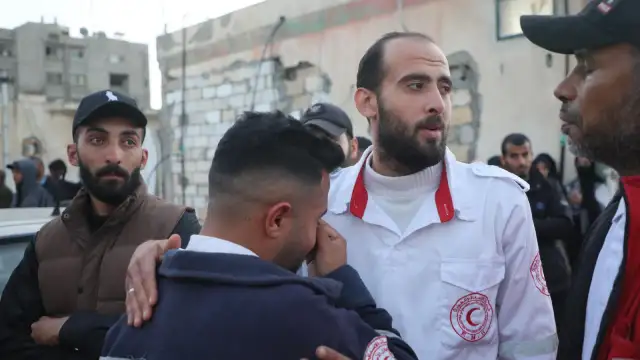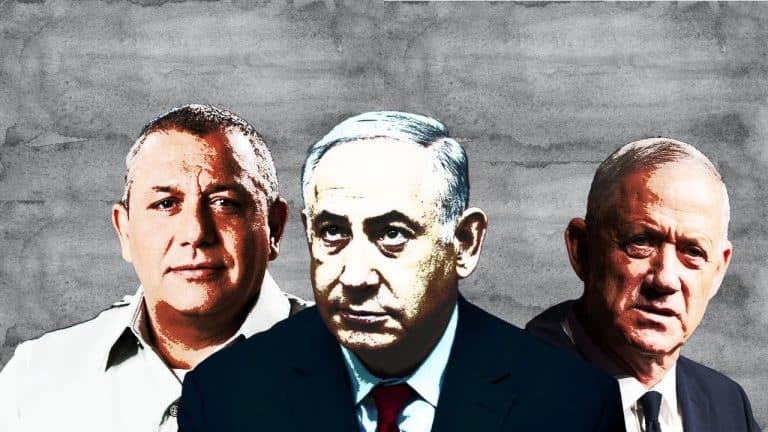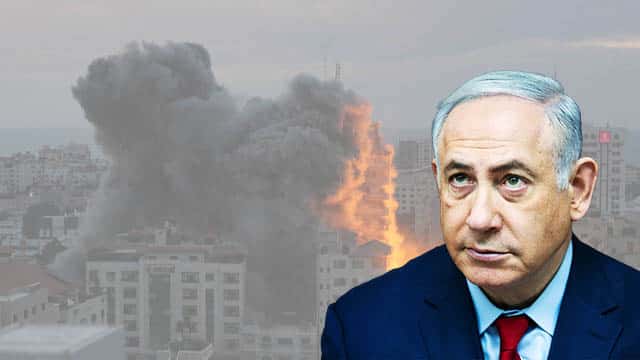The humanitarian crisis in the Gaza Strip has increased manifold due to Israel’s massive aerial raids following last weekend’s military raids by the Palestinian resistance organisation Hamas. According to the United Nations Office for the Coordination of Humanitarian Affairs (UN-OCHA), a total of 263,934 Palestinians have been displaced due to the Israeli raids on the Gaza Strip by noon, Jerusalem time, on Tuesday, October 10th.
Out of these internally displaced people (IDP), 175,486 have taken shelter in 88 UNRWA schools in the Gaza Strip. As the conflict continues, the number of IDPs may considerably rise, the UN-OCHA has anticipated. The number of casualties on both sides is also on the rise. With around 1,849 people killed on both sides and thousands more injured.
Total casualties of the conflict
According to the Palestinian Health Ministry, 849 Palestinians—830 in the Gaza Strip and 19 in the West Bank—were killed in the Israeli strikes on residential areas since the beginning of Hamas’s Operation Al-Aqsa Flood against Israeli occupation. The ministry’s bulletin at 5.20pm, Jerusalem time, Tuesday, reported that 4,250 Palestinians suffered injuries in the attacks.
The fatalities on the Israeli side are higher than that of the Palestinian side for the first time in recent history. According to the Israeli Health Ministry’s report, over 1,000 Israelis were killed until the evening of Tuesday and over 2,901 suffered injuries. Out of the injured, 105 are in a severe condition and one is in a critical condition.
The humanitarian crisis in the Gaza Strip
The Israeli raids have targeted the humanitarian aid sent to the Gaza Strip from its southern border with Egypt. The Gaza Strip, which houses over 2.2m people in its 326sq km territory, has been under Israeli blockade—land, air and sea—since 2007.
For the trapped people of the Gaza Strip, the Rafah crossing with Egypt had been the only way to escape violence or to receive food and other aid materials. The Israelis are now targeting the Rafah crossing, preventing the Palestinians from escaping the ordeal in the Gaza Strip.
Amid the incessant bombings by the Israeli forces, the Gaza Ministry of Public Works and Housing reported that a total of 1,009 housing units have been destroyed in the recent Israeli aggression. Around 560 houses suffered heavy damages that rendered them uninhabitable, and 12,630 sustained less damage.
Unconfirmed reports say Israeli attacks have also targeted a mosque and an ancient church in the occupied Palestinian territory. The people taking shelter in the UNRWA schools and a church in Gaza City aren’t confident of remaining securely there following Israeli Prime Minister Benjamin Netanyahu’s announcement of turning Gaza into a heap of rubble.
Apart from residential areas, the Israeli bombardment affected Gaza’s water, sanitation and hygiene (WASH) services. Since the beginning of the conflict on Saturday, October 7th, Israeli airstrikes have damaged five WASH facilities in the north of Gaza and Gaza City, which previously provided water and sanitation facilities to over 500,000 people in the region. According to the UN-OCHA, solid wastes are accumulating on the streets of Beit Lahia and other northern areas due to the damage caused to sewage lines and drainage infrastructure.
The Israeli authorities have also decided to cut off the water supply to the Gaza Strip, which will make the drinking water shortage in the region severe, affecting over 610,000 people, including women and children.
Peril for healthcare systems and workers
According to the UN-OCHO, the World Health Organization (WHO) has registered over 37 attacks on healthcare systems and workers until Tuesday evening. Six healthcare workers were killed in these attacks while eight have been injured. The attacks have destroyed 13 healthcare facilities and 15 ambulances.
Food, electricity and fuel scarcity in the Gaza Strip
The humanitarian crisis in the Gaza Strip has aggravated due to Israel’s announcement of a total halting of food, electricity and fuel supplies to the Gaza Strip. Due to the Israeli government’s cessation of power supply to the Gaza Strip on October 7th, the trapped region receives power for three to four hours daily.
The Gaza Power Plant is the only power source for the region and will reportedly run out of fuel on the mid-day of Wednesday, October 11th. The Israelis have threatened the power plant of an imminent attack if it attempts to get more fuel.
Due to the lack of electricity, different sectors like agriculture, livestock businesses, and healthcare services have been affected badly. This will further aggravate the food crisis in the Gaza Strip and can result in mass starvation.
Israeli aggression violates the Geneva Convention
The Israeli aggression on the Gaza Strip following Hamas’s Operation Al-Aqsa Flood has violated the Geneva Convention norms. Attacks on civilian targets, healthcare facilities and workers, and water and food supplies violate the Geneva Convention.
However, despite the aggravating humanitarian crisis in the Gaza Strip, the West continues to hail the Israeli aggression, which amounts to terrorism. The West has overlooked the overall sentiments of the Global South against Israel and continues to support Netanyahu’s schemes.
If the civilian targets were attacked with impunity by any other power, especially those hostile to the West, the latter would stir a cacophony condemning such actions. However, when it comes to the West itself or its allies, there is a sheer display of hypocrisy, Israel’s critics allege.
The humanitarian crisis in the Gaza Strip has been caused by the violation of the Geneva Convention and other international norms, rights activists have alleged. The critics of Israel have alleged that until the international community holds Tel Aviv responsible for it and acts against it, there can be no end to the crisis.
However, as the UN Security Council’s meeting ended without mentioning the crisis this week, it’s evident that Israel will continue to get a free hand in violating the human rights of the Palestinian people.

